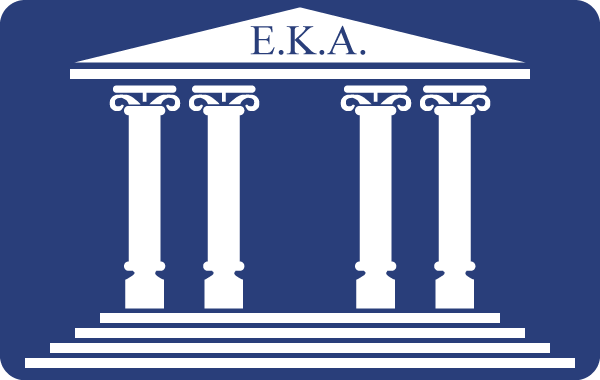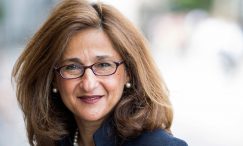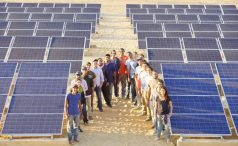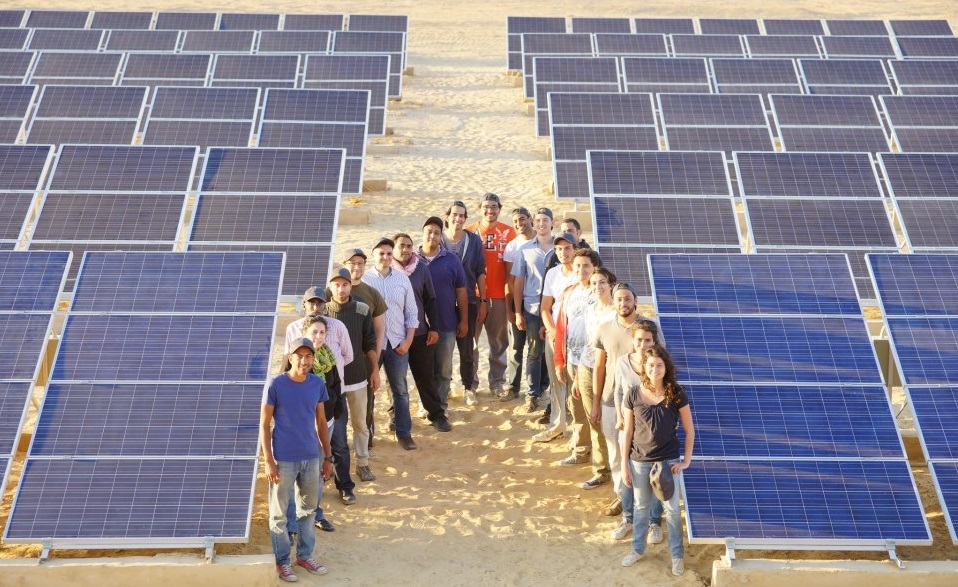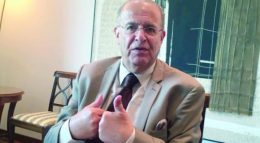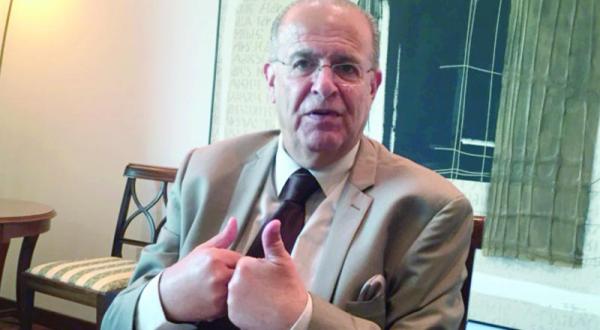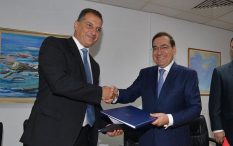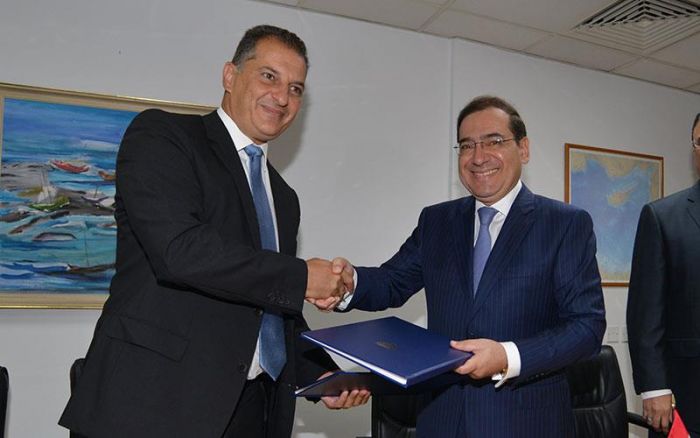 The Cypriot Minister of Foreign Affairs Ioannis Kasoulidis spoke to Asharq Al-Awsat for more than an hour and a half about the good relations between his country and the Arab region. He also touched on his meeting with President Abdel Fattah El-Sisi last month during a visit to Cairo in the presence of the Foreign Minister Sameh Shoukry as well as the Secretary-General of the Arab League Ahmed Aboul Gheit. There are four Gulf embassies in the capital of his country; they belong to Qatar, the UAE, Kuwait and Oman. He expressed hopes that the Saudi flag would fly over his territory and a Saudi embassy in Nicosia would be opened soon. There is also a Cypriot embassy in Riyadh, and he stressed that Saudi Arabia is the key to the Arab region. His interview with Asharq Al-Awsat follows:
The Cypriot Minister of Foreign Affairs Ioannis Kasoulidis spoke to Asharq Al-Awsat for more than an hour and a half about the good relations between his country and the Arab region. He also touched on his meeting with President Abdel Fattah El-Sisi last month during a visit to Cairo in the presence of the Foreign Minister Sameh Shoukry as well as the Secretary-General of the Arab League Ahmed Aboul Gheit. There are four Gulf embassies in the capital of his country; they belong to Qatar, the UAE, Kuwait and Oman. He expressed hopes that the Saudi flag would fly over his territory and a Saudi embassy in Nicosia would be opened soon. There is also a Cypriot embassy in Riyadh, and he stressed that Saudi Arabia is the key to the Arab region. His interview with Asharq Al-Awsat follows:
• How was your visit to Egypt last month?
It was a very fruitful meeting. I was received by President El-Sisi and the prime minister and we had very friendly, warm talks with the Foreign Minister Sameh Shoukry. I also visited the Arab League and Secretary-General Ahmed Abou Gheit. Let me say first of all that my visit to Egypt came in order to consolidate bilateral relations and to attend the meetings that were held in anticipation of the summit that is going to take place in October in Cairo between the Greek PM, the President of Cyprus and the President of Egypt in the context of the trilateral strategic coordination that is taking place between these three countries, and it is a continuation of what had been decided in Athens last year.
One of the main aims of this upcoming summit is considered part of the cooperation in the field of security, and the cooperation that exists in matters of security between the three countries in fighting terrorism and other asymmetrical threats. We decided in Athens that there should also be tangible results and we agreed on ways of combating terrorism, ISIS in particular, and that we will assist in the planting of olive trees in the Sinai Peninsula and in the creation of fish farms in certain areas designated by Egypt, particularly in Port Said. So I wanted to make sure that everything is going as had been decided so that these results will be able to be announced. There are other areas of cooperation between these three countries, including the exchange of ministerial meetings that have taken place. This week we are going to have the Egyptian Minister of Petroleum in Cyprus.
Egypt is one of our neighbours, a very significant country, pivotal for security in the region, and we value very much our strategic relationship with Cairo which aims at contributing to the stability and security in our region, particularly the eastern Mediterranean and beyond. Traditionally, Egypt and Cyprus have been very close from the time of Makarios and Nasser, this working together has been reinvigorated in the last few years. I am proud to say that I am the first EU minister that has visited Cairo on the 3rd of September 2013, just two months after the second revolution of the Egyptian people.
The coming conference in Cairo will be the implementation of projects decided in Athens.
Another purpose of my visit to Cairo was to discuss, with the foreign ministry but also El-Sisi, matters concerning our region regarding issues like Libya, Yemen, Syria, Middle East peace problems and so on.
• How did you hear about the military coup attempt in Turkey?
We were informed of a coup taking place from the media. Of course, we were worried. We were worried first of all because we don’t want a military junta coming back to Turkey, this is something that is unacceptable and retrograde for the period we are going through. We were relieved that the coup failed and we were relieved that the democratically elected government prevailed. So this was our first reaction. We are worried when there is an army of 43,000 troops in Cyprus and when these troops, for a few hours, are without orders and nobody knows who was where and who was supporting who. So, of course, we were worried.
• Did you go on high alert given that there are more than 40,000 Turkish troops stationed in northern Cyprus?
We didn’t go on high alert. We didn’t want to make movements that would provoke the other side. We were very restrained. Yes, our national guard took some measures but they were the appropriate measures that didn’t cause any concern to the Turkish Cypriot side.
• Did you speak with Turkish officials during or after the coup?
During the coup we spoke unofficially with the Turkish Cypriot leadership. We exchanged news with them and informed them that the situation did not affect us.
• Do you agree that the July 15 coup attempt in Turkey could actually be a further push for a settlement of the Cyprus problem as a way for the country to restore relations with the EU and the US?
The negotiations in Cyprus between the leaders of the two communities have been going on with a steady form of progress all the time. Ideas always need to mature before they converge. The longer the talks last, the more risks that an extraneous event can take place, such as the fallout of the failed coup. But I must say that after the coup attempt there were meetings between President Anastasiades and Mr. Akinci that show that nothing has affected the talks themselves.
The express wish of both leaders is to finish within 2016. Now let’s say that 95 or 98 per cent has been agreed and there remains something to go over to 2017, there is a problem if there is a stalemate and we don’t advance. We have been advancing so far.
• Following the coup attempt, Cypriot officials have been reiterating that it is not possible for Turkey to a have a role in security and guarantees of a settlement agreement. What is your view of that?
We have been saying this even before the coup attempt. We are saying that we seek a security system, following the agreement, that will make Greek Cypriots and Turkish Cypriots feel equally secure. An arrangement that results in a symmetrical sense of security between the two communities. We must find a way that we both feel equally secure.
• President Nicos Anastasiades and Turkish Cypriot leader Mustafa Akinci last week held their first discussions on territory, security and guarantees. The last time the issues were discussed at the negotiating table was in 2004. After a summer break, the leaders are expected to meet eight more times over the coming weeks, dedicating part of their discussions to these issues. Can we expect an agreement anytime soon?
I think if we have the political will, we can reach an understanding on the territorial and security issues, which are the two issues that have not yet been discussed apart from a first examination of the matter. We can then see the end of the road more clearly. This is going to take place in the days and weeks to come. On the 14th of September, after seven meetings, the leaders will decide about the next steps. You begin with preliminary points of view from both sides and then you try to narrow the gaps and reach a convergence. It needs a little bit of time.
• How is Cyprus handling the migrant crisis that is facing the EU and which has hit Greece the hardest in recent weeks?
Cyprus is the closest EU state to Syria. Despite that, because we are an island, we were spared. We were not affected that much by the migrant crisis. We get a boat every now and again. But because we are an island, we are not very attractive to the migrants. The reason is that the migrants want to go to affluent countries of the EU; Germany, Sweden, etc. They don’t want to come to Cyprus because if they come here that means they will be stuck here. They are only entitled to political asylum and will have to remain in Cyprus. They cannot go far. The EU has decided a fair distribution of migrants to all members of state. For Cyprus, according to the formula, we are supposed to receive 500 people. We were asked twice to go and collect refugees belonging to those in mainland Europe, only six accepted to come. We were asked to go and get 129 migrants from Greece. As for the others, they didn’t want to come.
• Italian oil and gas giant Eni has said it will start exploratory drilling off the south of Cyprus next year, following a meeting between the company’s boss and the Cypriot President. How will this affect Cyprus?
You know very well that after the discovery in the Egyptian exclusive economic zone (EEZ), a new geological model was used by Eni for this discovery, which proved that there should be many more reserves of natural gas in the eastern Mediterranean, whether in the Egyptian EEZ, the Cypriot EEZ or the Israeli EEZ, leaving alone Lebanon which also has possible reserves. So a lot of companies have shown interest in drilling, including Eni for the three areas which have been assigned to them. A new competition for new blocks took place in Cyprus with very good results, interests of companies like Exxon Mobile, and a company associated with Qatar Petroleum, Total. So many companies have shown interest. Next year there will be an announcement of new concessions and an assignment of locations for companies. This is extremely important. Not just for the economic prospects that will come, but the future prosperity on this island will serve both communities in Cyprus and will be an additional factor on why we should be united, not divided.
From March 2017 onwards, it’s up to the companies to decide. There is the option of pipelines which can go to Turkey if there is a solution to the problem of Cyprus. Then there is this project related to Greece. There is the LNG way to export through tankers, if you have an LNG power station. There are two in Egypt, waiting for us.
• How does Egypt being a member of the UN Security Council for 2016-17 effect hopes over the Cyprus negotiations?
It’s a great help with our cases in front of the Security Council twice a year. We get a tremendous help both at the UNSC but also at the OIC.
• You also met with Arab League Secretary-General Ahmed Aboul Gheit. How are Cypriot relations with the Arab League?
Cyprus is a member of the EU and values very much the strategic dialogue between Europe and the Arab world. For us, the Arab world is the closest group of countries and the obvious essential partner in working together. Visiting the Secretary-General of the Arab League was important to reiterate our friendship, our support of areas of cooperation between the EU and the Arab League, but also to explain to him the strategic opening of Cyprus, the strategic foreign policy of Cyprus, in reaching all the Arab countries.
• There is a new UAE embassy in Cyprus. Is this the start of a new era in relations with the GCC?
As you know we have resident embassies in Cyprus from Kuwait and Oman, and now the UAE. Saudi Arabia sent letters of credence from Athens last year.
We have an embassy in Riyadh, in Kuwait, in the UAE and Oman. And of course you know King Abdullah II is visiting Cyprus on the 6th. There is a full range of diplomatic activity and improvement of relations with all the GCC and Arab countries of the region. There are twelve Arab embassies in Cyprus including Syria and Libya.
• When will there be a Saudi embassy in Cyprus?
I look forward to having the Embassy of the Kingdom of Saudi Arabia in Cyprus soon and the Saudi flag flying in the skies of our country.
The Minister of Foreign Affairs’ Curriculum Vitae:
Ioannis Kasoulides was born on the 10th of August 1948, in Nicosia.
He studied Medicine at the University of Lyon in France and specialised in Geriatrics in London. He participated in the May ‘68 student demonstrations and founded and chaired the Federation of Cypriot Students’ Union in France.
Ioannis Kasoulides served the centre-right wing party Democratic Rally from various posts, including the post of the President of the Youth Organization of the Party. In 1991 he was elected as Member of the House of Representatives.
When Glafkos Clerides won the Presidential Election in March 1993 he was appointed Government Spokesman, a position in which he served until April 1997 when he was appointed Minister of Foreign Affairs until the end of term of Clerides’ administration in February 2003.
During his term as Minister of Foreign Affairs, Ioannis Kasoulides led the diplomatic effort that marked the beginning and the completion of the accession negotiations of Cyprus to the European Union.
In June 2004 Ioannis Kasoulides was elected for the first time as Member of the European Parliament achieving an outstanding vote record. He was appointed full member of the Foreign Affairs Committee and under this capacity he served in various positions, including the Presidency of the ad hoc Committee for Human Rights in Western Sahara. He also served as member of the Bureau of the European People’s Party (EPP).
Mr Kasoulides ran for President in the February 2008 elections in Cyprus. He won the first round, entering the run-off election against the eventual winner, Mr Demetris Christofias. Mr Kasoulides received just under 47% of the vote, having the support of the Democratic Rally only.
In June 2009 Ioannis Kasoulides was re-elected as Member of the European Parliament, breaking his previous outstanding record for the number of votes. He was elected Vice President of the EPP group of the European Parliament, and was appointed Head of the Foreign Affairs working group. He was re-elected in the same position in 2012.
Ioannis Kasoulides is fluent in English, French and German. He is the author of the book “Cyprus – EU: The accession as I witnessed it”.
He is married to the doctor, Anaesthesiologist Mrs Emy Kasoulidou and they have a daughter, Joanna.
Mr Kasoulides assumed office as Minister of Foreign Affairs of the Republic of Cyprus on 1st March 2013.
The four resident embassies in Cyprus: UAE, Oman, Kuwait, Qatar
(english.aawsat.com)
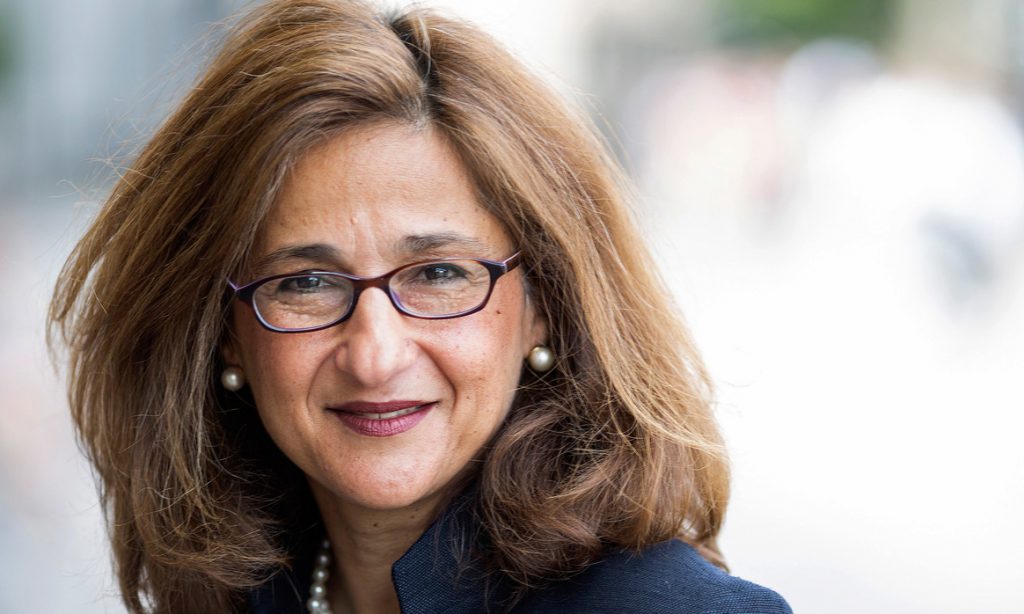 Egypt-born Dame Nemat Shafik is set to become the first woman to run the London School of Economics and Political Science (LSE), replacing American sociologist Craig Calhoun.
Egypt-born Dame Nemat Shafik is set to become the first woman to run the London School of Economics and Political Science (LSE), replacing American sociologist Craig Calhoun.